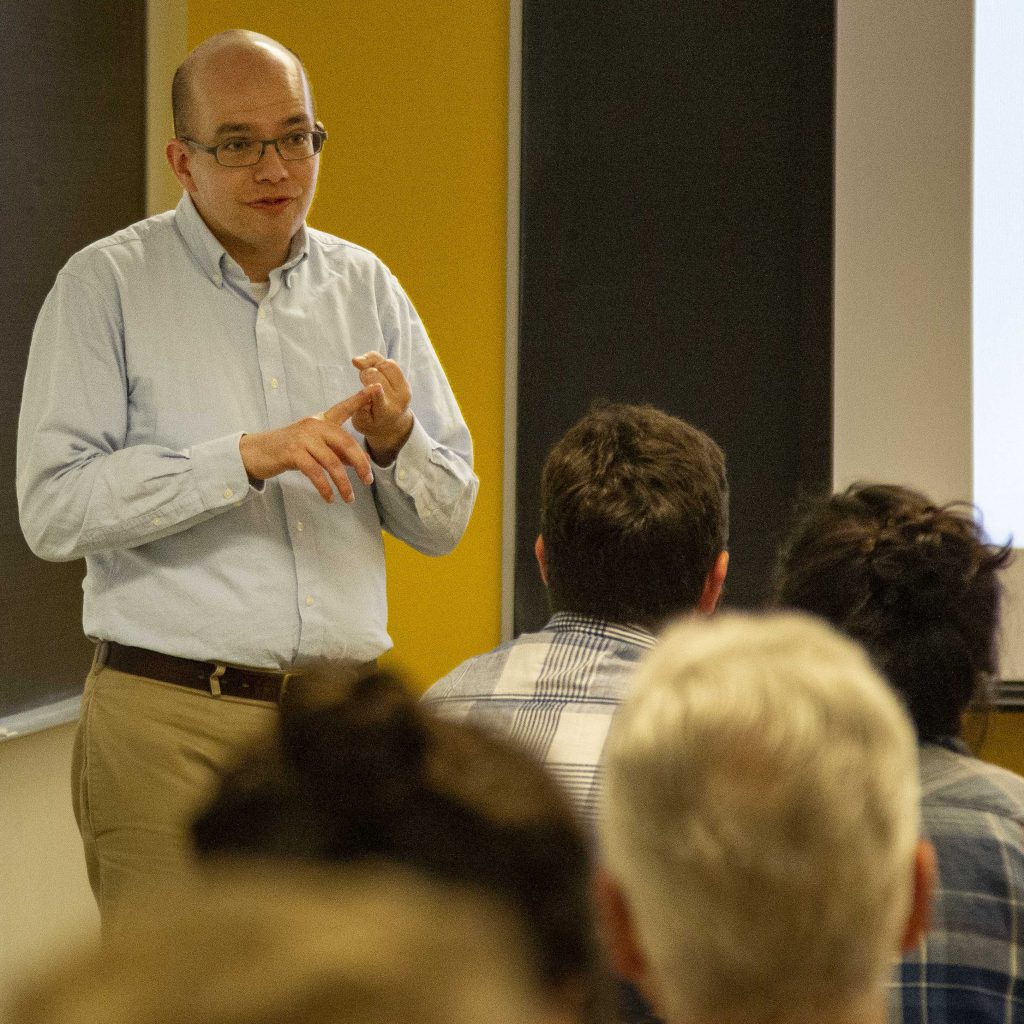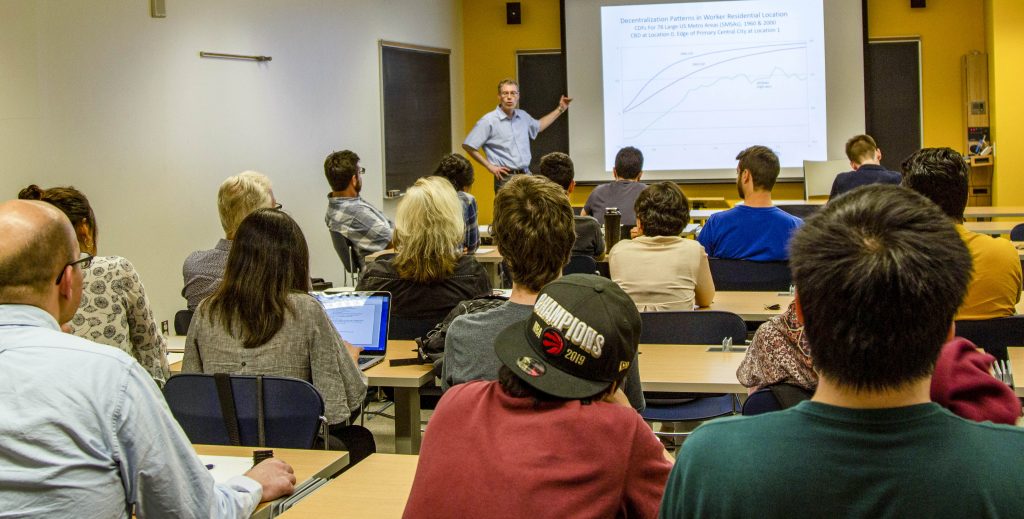UTTRI associated faculty Professor Jonathan Hall and Rotman’s Professor Nate Baum-Snow spoke at the June 27 seminar in the Cities By Design: The Future of Urban Mobility series, part of the Urban Challenge Project Seminars presented by the School of Cities in partnership with UTTRI.
Professor Steven Farber warmly welcomed the crowd and introduced the speakers.
Professor Jonathan Hall presented first with “Is Uber a substitute or a complement for public transit?”

Among many points raised, Professor Hall discussed how Uber is associated with increased transit ridership among small transit agencies in large cities.
Professor Nate Baum-Snow, Associate Professor of Economic Analysis and Policy at the Rotman School of Management followed with his presentation “Are Highways Good for Cities?”
Highways have caused a movement of jobs, people and commutes from cities to suburbs, said Professor Baum-Snow, citing evidence from the US and China. He estimates that overall, US urban highways promoted welfare gains that exceed their construction costs, mostly because the highways opened up additional space for urban uses.

The seminars were followed by lively discussion.
Forthcoming seminars
July 11, 3-5 p.m., Rm BA 2139, Bahen Centre for Information Technology, 40 St George Street.
- Dr. Ahmadreza Faghih Imani, “Does the future of urban mobility rely on two wheels?”
- Dr. Dena Kasraian, “A multi-decade longitudinal analysis of transportation, land use and travel demand developments in the Greater Toronto-Hamilton Area”
- PhD candidate Laura Minet, “Health and climate benefits of electric vehicle deployment in the Greater Toronto and Hamilton Area (GTHA)”
July 25, 3-5 p.m., Rm BA 2139, Bahen Centre for Information Technology, 40 St George Street:
- Janelle Lee, Analyst, Transportation and Urban Solutions, Pembina Institute, “Delivering ‘last-mile’ solutions: A feasibility analysis of microhubs and cyclelogistics in the GTHA”
- Professor Matthew Roorda, “Case studies in ‘last-mile’ logistics in the Toronto area”
Wednesday, August 7, 3-5 p.m., MY 440, Myhal Centre for Engineering Innovation and Entrepreneurship:
- Professor Shoshanna Saxe, “Rethinking the impacts of transport infrastructure – a holistic life cycle approach”
- William Denning, TBA
About Cities By Design: The Future of Urban Mobility
For the first time in history, the majority of people live in urban settings. Cities are the engines of economic growth, but are plagued with challenges relating to resource allocation, constrained government spending, ecosystem protection, creating migrant and youth opportunities, social inequities, labour market changes and infrastructure aging. Thrown into this arena, emerging technologies such as automated and connected vehicles, ride-hailing services, Mobility-as-a-Service platforms, and micro-transit are threatening rapid changes to our mobility systems. The academic and policy debates are rife with visions of new mobility utopias, where technology drives improvements in efficiency, CO2 emissions, and social inclusion. Also prominent are visions of mobility dystopias, where private vehicles control more of the public realm, mobility benefits are concentrated among the wealthy, and labour standards are eroded. Cities now face the massive challenge of evaluating the potential benefits, costs, and unintended consequences of integrating a heterogeneous mix of promising technologies with existing transportation infrastructure and mobility services.
In light of this uncertainty, it is imperative that we conduct evidence-based research to guide transportation policy to achieve the many positive promises of emerging technologies, while ameliorating the inherent risks in technology-induced disruption. The Future of Urban Mobility seminar series will provide the U of T community a space to engage on these topics and explore research opportunities with the Mobility Cluster at the School of Cities.
Presented in partnership with the School of Cities.

